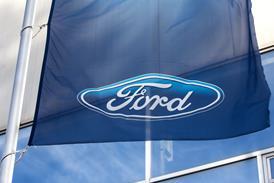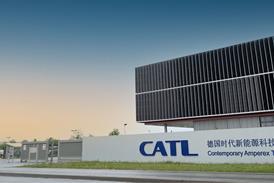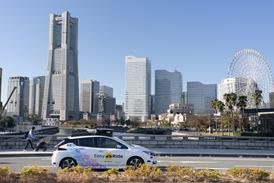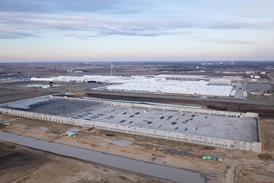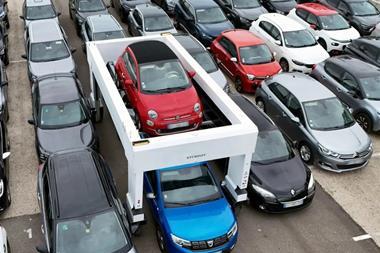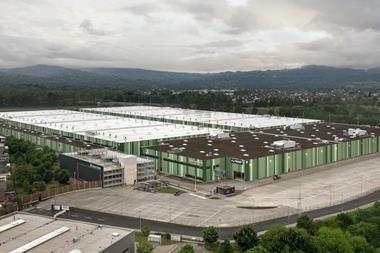 Car manufacturers in Japan are checking the extent to which they are affected by using incorrectly certified parts from Kobe Steel that has brought a halt to its shipments and could have impacts across the supply chain in Japan.
Car manufacturers in Japan are checking the extent to which they are affected by using incorrectly certified parts from Kobe Steel that has brought a halt to its shipments and could have impacts across the supply chain in Japan.
Internal quality and government-ordered safety checks are being carried out after the metal producer admitted at the weekend that it has shipped thousands of tonnes of aluminium and copper products in the past year which did not meet specifications as agreed with customers. According to the company, affected products account for about 4% of its shipments of aluminium and copper parts and aluminium castings and forgings.
Sources say that at this stage there is no suggestion vehicle safety has been compromised, nor is there any talk as yet of product recalls. But the problem threatens to damage the reputation of Japan Inc, according to some commentators.
A Nissan spokesman told Automotive Logistics: “We have confirmed that aluminium from Kobe Steel is used in the hoods and doors of some of our vehicles. As hoods are related to pedestrian safety, we are working to quickly assess any potential impact on vehicle functionality.”
A Honda spokesman said: “Having had an investigation on our products based on Kobe Steel's announcement, we confirmed that an aluminium produced in that specific period was used in doors and bonnet of our automobile products. Our products will only use aluminium that passes the internal inspection.”
Other Japanese car manufacturers, Toyota, Mazda, Subaru, Suzuki and Mitsubishi, are checking to see what degree their vehicles are affected by Kobe’s verification malpractice.
On Wednesday Kobe Steel shares fell by 19.1%, their maximum daily limit on the Tokyo Stock Exchange for the second consecutive day, with the share price down close to 40% in two days.
Kobe says it discovered late-August that some aluminium and copper products did not match inspection documents; the certificates’ data had been improperly rewritten and products were shipped as having met specifications agreed with customers. The discrepancies relate to details such as dimensions and tensile strength, according to Japanese media reports.
Executive vice-president Naoto Umehara told a press conference that workers were “feeling pressure” to meet deadlines to deliver products, but denied data fabrication was ordered by senior management. He conceded, however, that “we have no choice but to think that the data manipulation was conducted systematically” because many in managerial positions were found to have been involved.
The Nikkei business newspaper reported the data in question concerns client specifications on quality, but does not violate the law or rules governing Japanese industrial standards.
Kobe said approximately 19,300 tonnes of flat rolled and extruded aluminium, around 19,400 units of aluminium castings and forgings, and about 2,200 tonnes of copper strips and tubes shipped in the 12 months to 31 August are affected by what the company terms improper conduct.
Those deliveries, which account for about 4% of Kobe’s total aluminium and copper sales, were to around 200 customers, including makers of aircraft, trains, hard disk drives, semi-conductors, air conditioners and drink cans.
“We immediately stopped further shipments and notified our customers,” a Kobe spokesman told Automotive Logistics. “We are working together with our customers to determine what effect our non-conforming materials have had on their products ... [and] to verify whether the non-conforming materials have affected the quality and safety of their products. So far, we have found no problems.”
He added: “To our understanding, this incident has not affected the automotive supply chain.”
The products were reportedly shipped from Kobe’s plants in Moka (Tochigi prefecture), Inabe (Mie) and Shimonoseki (Yamaguchi), and from subsidiary Kobelco & Materials Copper Tubes in Hadano (Kanagawa).
Kobe is conducting an internal investigation, headed by group chairman, president and CEO Hiroya Kawasaki, which will deal with quality issues. “Once the results of the investigation are known, we intend to take appropriate action,” the spokesman said.
Later in the week it also emerged the company may have also fabricated data on iron powder used in automotive gears, engines, steering mechanisms and brakes. A Kobe Steel spokesman confirmed a report in the Yomiuri newspaper about that possible malpractice and said it was investigating the matter.
Japanese media has also reported that a review of the past ten years revealed other incidents of falsification.
Kobe’s revelations have further knocked confidence in Japanese manufacturing, a week after Nissan’s recall of around 1.2m vehicles following regulators’ discovery that unauthorised inspectors had approved vehicle quality. Takata has gone bankrupt after misleading carmakers about the safety of its air bags, while Kobe Steel-affiliate Shinko Wire last year said one of its units had misstated data on tensile strength on a number of products.
In a statement, Kobe said the incident has brought "overwhelming shame" on the company and it sincerely apologises for the enormous worry it has caused customers and related parties.











